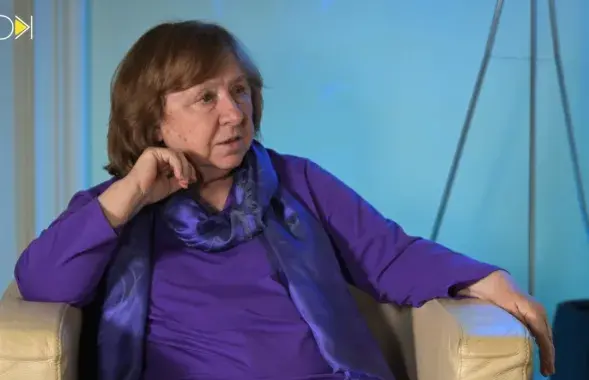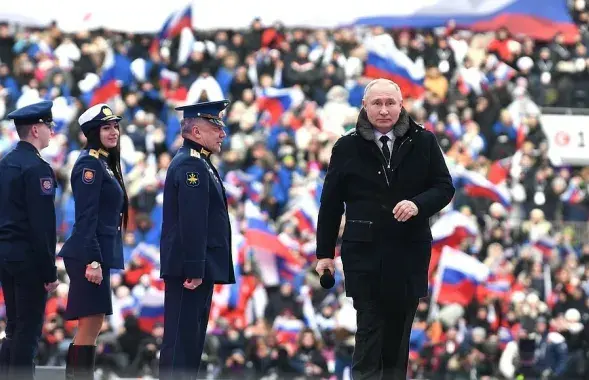European Commission is suggested to update "black list" of Belarusian offic
Non-governmental organizations have analyzed the progress of Belarus with regard to democracy and human rights since November 2008, and prepared a series of rec
Next month, the Ministers of Foreign Affairs of the European Union
countries will decide on whether to abolish or to prolong visa sanctions
with regard to Aliaksandr Lukashenka and a series of Belarusian
officials after analysis of progress of Belarus in the sphere of
democracy and human rights.
The monitoring of development of the
situation in our country since November 2008 till September 2010 has
been prepared by the Assembly of Democratic NGOs, Belarusian Association
of Journalists, Belarusian Helsinki Committee and other
non-governmental organizations. Its aim is to provide the most objective
information in view of the upcoming decision of the EU Council of
Ministers, says the Chairman of the Belarusian Helsinki Committee Aleh Hulak.
Aleh Hulak: "Many
Belarusian, and in the first place European, politicians and experts
had great expectations with regard to liberalization announced in the
middle of 2008. It is important that people should not mistake the wish
for the reality".
As for the reality, it is not optimistic at all, in accordance with the specialists' analysis.
Aleh Hulak: "There
has been no changes in the system, it is still hostile to the civic
society, to journalists, to democracy and human rights in general. The
authorities tried to decrease obviousness and brutality of repressions,
there became less of them, less of big fines and long detentions.
However, we cannot say they won't repeat tomorrow, as the officials
received no signals the system had changed so they would not work any
other way".
As it comes from the words of the human rights activist, the first condition of the European Union for improvement of relationship (absense of political prisoners) has not been fulfilled.
Aleh Hulak:
"We still have the problem of political prisoners in Belarus. We
consider all the people sentenced in connection with Autukhovich's case
political prisoners".
In addition to the above, the human
rights activists remind that Maxim Dashuk, sentenced upon the "case of
14" is still serving punishment, Siarhej Kavalenka is sentenced to
restriction of freedom, Mikhas Bashura is detained.
As for the amendments of the electoral legislation so it would meet OSCE requirements (the second EU condition), the "amendments
have not touched such key problems as granting of transparency during
counting of votes and providing the opportunity to constructively
observe the voting process, counting of votes and summing up the
results", stated in the monitoring.
As for the right for freedom of word and the media (the third condition),
the problem of access to the information has "unbeliavably increased"
recently, according to the Chairperson of the Belarusian Association of
Journalists Zhanna Litwina.
Znanna Litwina: "Among the
long-term problems there are the following: problem with equal economic
conditions for media with different types of property, dissemination of
non-governmental civic and political publications, accreditation of
journalists working for foreign media, and now we also have Internet
censorship after the Decree No. 60 has come into force".
As for the right of freedom of assembly and association, as well as legal state of non-governmental organizations (fourth condition),
a series of separate cases of registration of NGOs did take place, says
the Chairman of the Executive Bureau of the Assembly of NGOs Siarhej Lisichonak. However, "legal status is still an unachievable dream for political and human rights organizations",
stated in the monitoring. Moreover, the Article 193-1 of the Criminal
Code which prohibits activisty on behalf of unregistered organizations,
is still in force.
Aleh Hulak: "We see total absense of progress in this issue, just negotiations. However, we can negotiate a lot and there will still be death penalty".
Apart from the above-mentioned monitoring, Belarusian experts have prepared 5 recommendations for the European officials.
Siarhej Lisichonak: "Firstly, not to abolish visa sanctions with regard to Belarusian officials until there is a considerable progress in the situation with human rights".
The European Commission is also advised to suspend the sanctions for the next 6 months in order to cover the presidential campaign and possible repressions afterwards.
Thirdly, the European officials are recommended to introduce a more effective sanction system after the electoral campaign, for example, to update the "black list" of those who violated human rights, operatively.
Alongside with that, it is recommended to prepare a report on Belarusian situation on concrete criteria and to involve the civic society into the dialogue between Belarus and the EU at all stages. Finally, the European officials are recommended to stop helping the repressive institutions, like the Ministry of Internal Affairs, local elections commissions, court instances, and to increase help aimed at reforms.

















